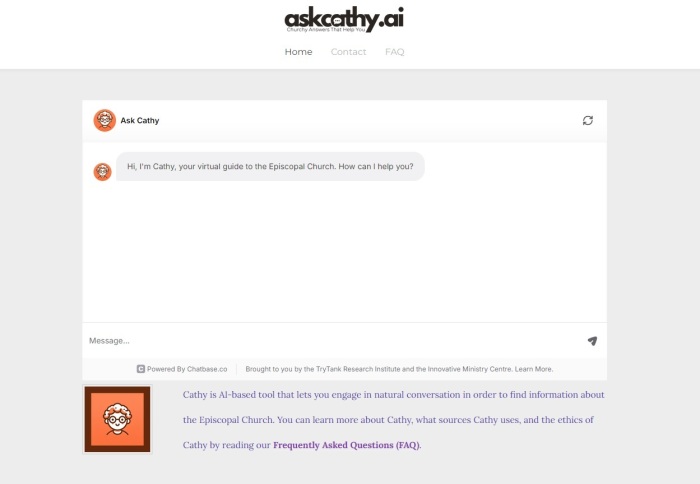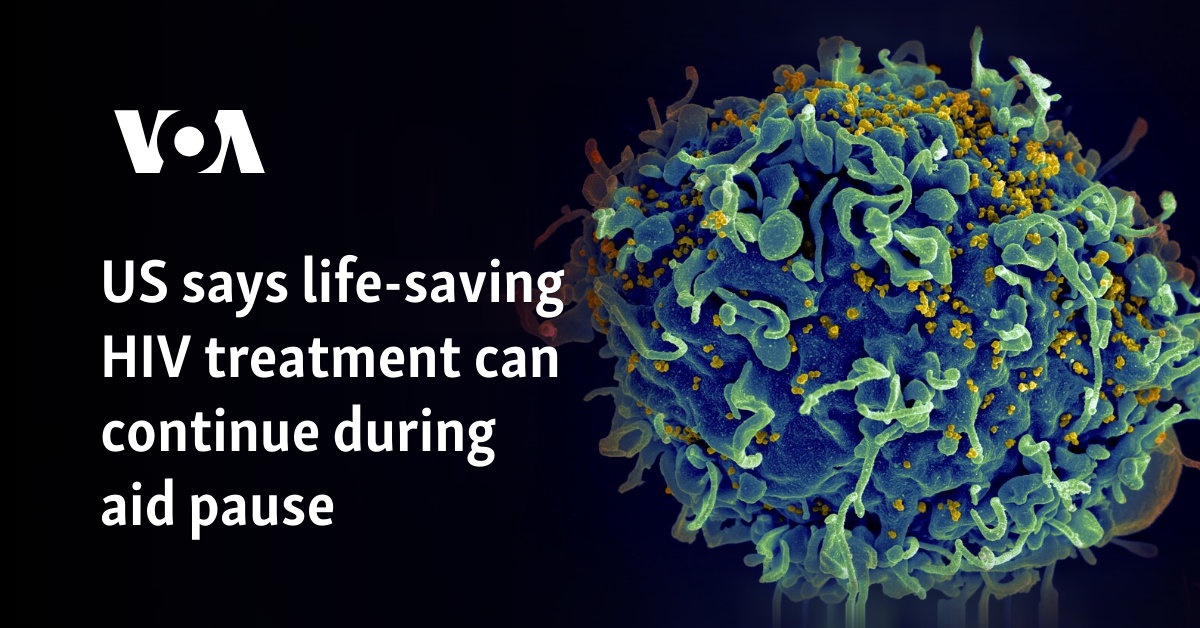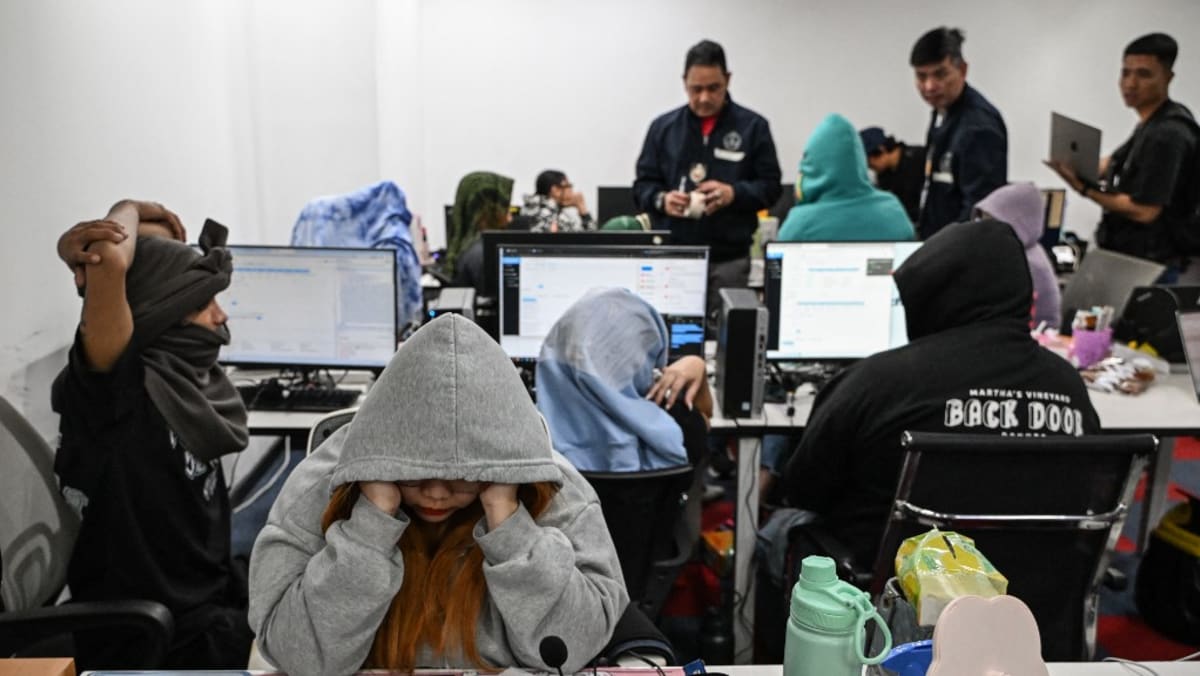
An artificial intelligence chatbot meant to answer questions about The Episcopal Church called “AskCathy” was launched via a collaboration with a ministry group and a research organization.
Short for “Churchy Answers That Help You,” AskCathy was given a soft launch in June after being developed by the Toronto United Church Council’s Innovative Ministry Center and the TryTank Research Institute at Virginia Theological Seminary.
The Rev. Lorenzo Lebrija, executive director at TryTank Research, told The Christian Post that the goal of AskCathy was “to create a bot that could be accessed at any time from anywhere to provide basic answers about The Episcopal Church.”
“As we built Cathy, we realized that the tool could do much more than we originally thought. Cathy is built on the latest version of ChatGPT, but she has a specific ‘bookcase’ that trumps anything she may find from the ChatGPT general knowledgebase,” Lebrija said.
“We have filled this bookcase with more than a thousand sources of Episcopalian/Anglican beliefs. It has documents from the church-wide Episcopal Church (mainly through its website). It has books from Forward Movement and documents related to our General Convention. Whenever possible, it will also cite the source for the user to find out more.”
Lebrija told CP they “ended up with a tool that clerics and lay leaders could use to save time in getting to an answer” which “can explain everything from the Trinity” to issues like “church polity” and “even the Title IV disciplinary process.”

As such, the chatbot can be especially valuable to laity-led congregations, which Lebrija says are the “fastest-growing segment of Episcopal churches” in the mainline Protestant denomination.
“They can chat with Cathy and find out about church canons or appropriate hymns and even creating a specific prayer for a very specific occasion,” he continued.
“So, for example, a lay leader can ask Cathy what to do about the death of an uncle of someone in the congregation whom they are about to visit. Her response will offer prayer suggestions from the Book of Common Prayer, scripture passages, perhaps even some hymns.”
Lebrija added that “because the ‘bookshelf’ also contains a ton of sermons, she’ll add that the most important thing the person mourning will want is your presence there.”
Last year, the Barna Group released the findings of a survey on Christians’ opinions of AI, with only 22% of respondents saying that they believed AI was “good for the Christian Church, while 51% disagreed and 27% were unsure.
For his part, Lebrija believes that most people using AskCathy see it “as a tool and in no way a replacement for human interaction,” which “can augment the work of The [Episcopal] Church.”
“To be clear, AI should never be used in place of people, and that is not the intent of Cathy. Cathy regularly encourages people to seek further, deeper advice from local clergy or spiritual guides,” he said.
“Ideally, Cathy is a tool that can allow us to grow deeper into the Episcopal faith.”
In July of last year, the technology company Longbeard helped to launch Magisterium AI, a chatbot program aimed at helping to answer questions about the Roman Catholic Church.
Matthew Harvey Sanders, founder and CEO of Longbeard, told CP in an interview in April that, within weeks of its launch, Magisterium AI had had around 180,000 people using it.
“When ChatGPT launched, we became aware that Catholics were using it to answer questions on church teaching,” Sanders said to CP. “Given the system’s high likelihood to hallucinate and its lack of transparency as to what documents it references in generating responses, we felt we had to act.”
“So, we investigated if it would be possible to build an AI system that ensured greater fidelity to Church teaching and fortunately, with some hard work, we discovered it was indeed possible.”








